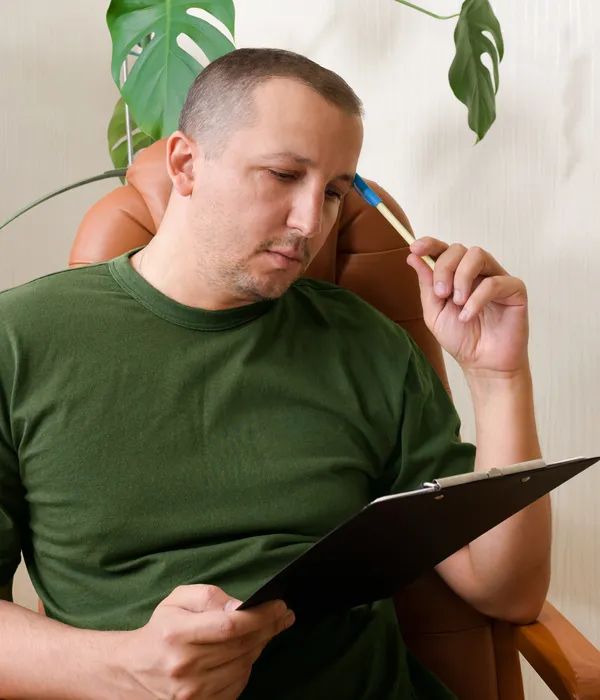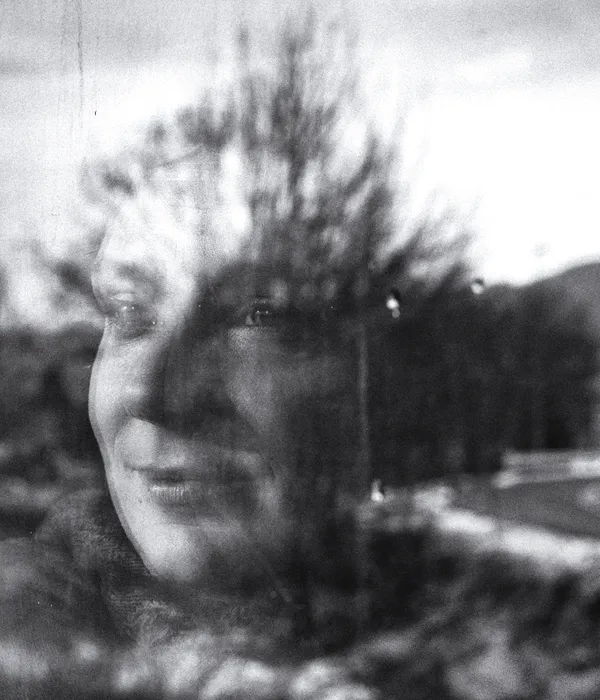PTSD Treatment Los Angeles
Finding Relief From Trauma
Living with PTSD can feel like your body is constantly in fight-or-flight mode. The effects of trauma often seep into every part of your life, from sleep and relationships to work and emotional stability. For many in Los Angeles, trauma and PTSD are ongoing battles, but healing is possible. Through professional PTSD treatment in Los Angeles, you can reclaim your life.

Understanding PTSD and How It Manifests
Post-traumatic stress disorder (PTSD) is a mental health condition that can develop after a traumatic event. It is not always dramatic or obvious. You may notice subtle signs like irritability, numbness, sleep issues, or avoiding reminders of the trauma. These symptoms of PTSD can result from a wide variety of trauma, including developmental trauma, complex trauma, abuse, violence, or accidents.
In LA, PTSD treatment centers take a comprehensive approach. They recognize that trauma often coexists with other mental health conditions. Effective trauma therapy in Los Angeles aims to treat both the trauma and its ripple effects across your life.
What to Expect From PTSD Programs in Los Angeles
Treatment programs in Los Angeles offer a full continuum of care. These programs are designed for trauma survivors who need space, time, and expert support to process trauma and rebuild.
Individual therapy is the foundation of PTSD treatment. With the help of a trauma therapist, you can begin to process trauma safely and gradually. PTSD treatment centers offer modalities such as Eye Movement Desensitization and Reprocessing (EMDR), trauma-focused cognitive behavioral therapy (CBT), and cognitive processing therapy. These sessions allow you to face traumatic memories and reframe distorted beliefs.
Healing is not a solo journey. Group therapy creates space for trauma survivors to connect with others who understand their pain. Group sessions often focus on processing trauma, building emotional regulation skills, and exploring shared experiences. Peer support can be incredibly validating. These sessions help normalize your PTSD symptoms and reduce isolation, making it easier to stay engaged in treatment.
PTSD ripples through families. In family therapy, loved ones learn how trauma affects communication, emotions, and trust. Trauma treatment centers offer family-focused therapy to improve relationships and help families become part of the healing process. These sessions teach skills for setting boundaries, navigating triggers, and creating safer emotional environments at home.
PTSD is frequently tied to other mental health challenges. Dual-diagnosis programs provide integrated care to treat both PTSD and co-occurring conditions. Trauma and addiction often go hand in hand, and treating PTSD without addressing substance use can limit recovery. Coordinated care makes sure nothing is missed, and each part of your mental health is treated with equal importance.
Evidence-Based Modalities for PTSD
Top PTSD treatment centers in Los Angeles use therapies backed by research and tailored to each client’s trauma history.
Cognitive Behavioral Therapy (CBT)
Cognitive-behavioral therapy is a common trauma treatment that helps change thought patterns associated with the trauma. PTSD may distort how you view yourself and the world. CBT and trauma-focused CBT aim to correct those distortions and ease symptoms of post-traumatic stress disorder. CBT teaches practical skills to manage avoidance, fear, and self-blame, and it’s often part of an individualized treatment plan.


Dialectical Behavior Therapy (DBT)
DBT supports people with complex trauma who experience emotional dysregulation. Many trauma treatment programs include DBT as part of an integrative trauma approach. This structured therapy helps trauma survivors tolerate distress, regulate overwhelming emotions, and improve relationships.
Eye Movement Desensitization and Reprocessing (EMDR)
EMDR is a powerful, evidence-based therapy that helps you process trauma without verbalizing every detail. It works by using bilateral stimulation to help the brain heal from psychological trauma. For people stuck in fight-or-flight mode, EMDR can unlock deeper healing when traditional talk therapy hasn’t been enough.


Brainspotting and Somatic-Based Therapies
These body-based modalities allow for deep trauma healing when words fall short. Brainspotting and somatic experiencing both help regulate the nervous system and release stored trauma. These therapies are particularly useful for developmental trauma, complex trauma, and traumatic experiences that began early in life.
Holistic Healing for PTSD Treatment in Los Angeles
Holistic trauma programs in LA treat the mind and body together. These practices help trauma survivors reconnect with their bodies and reinforce nervous system regulation.
Yoga and movement therapy help trauma survivors reconnect with their bodies in a gentle, empowering way. These practices emphasize grounding, breathwork, and safe physical awareness. All of these are especially important for those who experience dissociation or body-based PTSD symptoms.
Mindfulness practices such as guided meditation and breath awareness support emotional balance and stress relief. For those suffering from PTSD, these tools offer real-time techniques to soothe hyperarousal and bring attention back to the present moment.
Many trauma treatment centers incorporate nutrition into their healing programs. Balanced meals, hydration, and supplement support can reduce inflammation, improve mood, and help stabilize energy levels, all of which aid trauma recovery.
PTSD often disrupts sleep patterns. Holistic programs focus on restoring healthy sleep hygiene with consistent routines, screen limits, calming rituals, and sometimes natural supplements. Better sleep strengthens your ability to process trauma and engage fully in therapy.
Specialized PTSD Support for Marginalized Communities
Trauma is not experienced equally. In a city as diverse as Los Angeles, treatment centers are prioritizing culturally competent, identity-affirming care. People of color, LGBTQ+ individuals, immigrants, and trauma survivors from marginalized backgrounds face unique stressors that can compound trauma and PTSD.
PTSD treatment in Los Angeles offers focused therapy that acknowledges racial trauma, generational trauma, and systemic harm. Specialized group therapy and trauma therapists are here to help ensure all clients feel seen. The best trauma centers recognize that healing is personal, cultural, and political.

Levels of Care for PTSD Treatment
Lost Angels offers various levels of care depending on the severity and duration of PTSD symptoms. Here, there’s a path that matches your needs.
Outpatient Therapy
Outpatient therapy lets you engage in healing while maintaining your routine. Clients work with a therapist on an ongoing basis, often focusing on processing past trauma, regulating emotions, and learning coping strategies. Telehealth services are widely available for those seeking flexibility.
Intensive Outpatient Programs (IOP)
IOPs offer a structured but less restrictive option than inpatient care. You’ll engage in multiple therapy sessions each week, including trauma therapy, art therapy, and possibly movement therapy. This kind of treatment can help support trauma disorders through comprehensive treatment modalities and trauma-informed care.
Residential and Inpatient Programs
Residential PTSD treatment centers offer 24/7 support for those with severe PTSD or complex trauma. You’ll participate in trauma-focused therapy, group sessions, psychiatric care, and wellness activities. Residential treatment centers often provide the most immersive experience, with personalized treatment planning and a full treatment team.
Medication and Psychiatric Support
Psychiatric care may include medication to manage PTSD symptoms like anxiety, panic, or insomnia. This support complements therapy and creates emotional stability that helps people fully engage in their healing center or outpatient program.

Healing Starts With Lost Angels
At Lost Angels, we understand how heavy trauma can feel, and how hard it is to ask for help. You do not have to carry it alone. Our team specializes in trauma and PTSD treatment that honors your story and your needs.
If you’re facing the lasting effects of a painful past, we’re here with evidence-based therapies. We combine evidence-based treatment with the kind of care that sees the whole you.
You deserve to feel safe again. You deserve to feel like yourself again. If you’re ready to take that first step, we’re here to walk beside you. Reach out to Lost Angels today. Healing doesn’t have to be perfect. It just has to begin.
Related Treatments
Frequently Asked Questions
What therapies are most effective for PTSD in Los Angeles?
The most effective trauma therapies include EMDR, CBT, DBT, and somatic therapies. Many programs offer therapy practice options designed for trauma recovery.
Are inpatient PTSD programs better than outpatient?
It depends on your trauma symptoms and daily support system. Inpatient care provides immersive, full-time treatment. Outpatient care works for those who can manage symptoms with weekly support.
How long does PTSD treatment usually take?
PTSD treatment varies depending on your needs. Outpatient therapy may last several months, while residential programs typically range from 30 to 90 days.
Can I get help for PTSD if I also have anxiety, depression, or addiction?
Yes. Many PTSD treatment centers in LA provide comprehensive treatment for PTSD and co-occurring conditions, including addiction treatment and mental health treatment.







